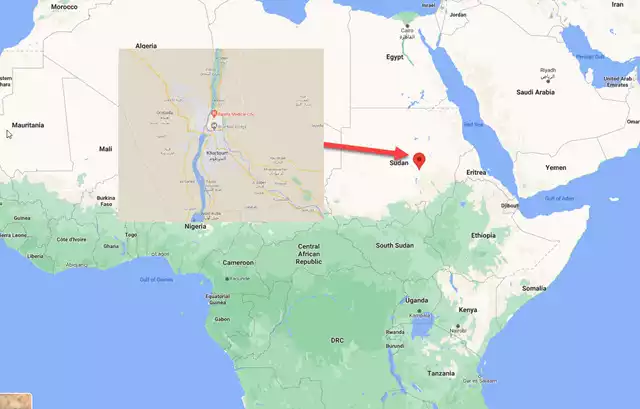
Mashreq University vision is to bring students into the 21st century through innovation and modern technology.
Learning will be enhanced with computer software and educational games that will allow students to procced at their own rate according.
Mashreq University aspires to change minds lives and the world through leadership, innovation and excellence in teaching and research. As we move towards our goal of being a world-class university, we will support research on a global scale to service the research need.
Mashreq University is located in the north eastern side of Khartoum-Bahri city.
It was established in the year 2003 ; when it obtained its approval from the Sudan Ministry of Higher Education and Scientific Research upon proving it’s exceptionally
Research upon proving it’s exceptionally well designed and ideally constructed premises to adequately accommodate the lecture rooms and other services.
The approval included a close of appreciation of the infra-structure. The specially designed and constructed University buildings, facilities and infrastructure provide the appropriate educational environment.
Ten lecture rooms of different capacities are available
Laboratories are equipped with the latest in teaching aids technologies
We ensure well trained and qualified graduates
In an era where technological advancement shapes the landscape of education, Mashreq University stands at the forefront of innovation, pioneering modern technology to enhance learning experiences and foster academic excellence.
Established with a vision to integrate cutting-edge technology into its educational framework, the university is committed to preparing students for the demands of a rapidly evolving global job market.
By leveraging state-of-the-art tools and methodologies, Mashreq University creates a dynamic learning environment that encourages creativity, critical thinking, and collaboration.
From interactive digital classrooms to advanced research facilities, the institution seamlessly blends traditional educational practices with contemporary technological solutions.
This article delves into the various initiatives undertaken by Mashreq University to harness the power of modern technology, highlighting its impact on curriculum development, student engagement, and research opportunities.
As the university continues to innovate, it not only enhances the academic journey for its students but also contributes to the broader discourse on the role of technology in higher education.
Through a commitment to excellence and a focus on future-ready skills, Mashreq University exemplifies how educational institutions can adapt to the challenges of the 21st century, ultimately shaping the leaders of tomorrow.
Table of Contents Mashreq University
Mashreq University
Embraces cutting-edge technology advancements for enhanced learning experiences
The integration of advanced technological tools within the academic environment has significantly transformed the educational experience at Mashreq University.
By leveraging state-of-the-art learning management systems, immersive virtual reality modules, and interactive multimedia resources, the institution fosters an engaging and dynamic atmosphere for students.
This approach not only enhances knowledge retention but also encourages collaboration and critical thinking among learners, preparing them for the challenges of the modern workforce.
Furthermore, the commitment to incorporating artificial intelligence and data analytics into the curriculum has empowered educators to tailor their teaching methods to meet the diverse needs of students.
Real-time feedback mechanisms enable continuous improvement of course content and delivery, ensuring that learners are equipped with relevant skills and competencies.
As a result, Mashreq University positions itself at the forefront of educational excellence, cultivating an innovative culture that prioritizes the holistic development of its students.
Innovative programs
Foster creativity and critical thinking among students
The cultivation of creativity and critical thinking among students is paramount in today’s rapidly evolving educational landscape.
By implementing project-based learning initiatives and interdisciplinary approaches, educational institutions can inspire students to explore complex problems and develop innovative solutions.
These programs encourage learners to engage deeply with the material, fostering a sense of ownership over their education while promoting collaboration and communication skills.
Through challenges that require diverse perspectives and critical analysis, students become adept at navigating ambiguity and finding unique pathways to success.
Moreover, mentorship opportunities and workshops centered around creative problem-solving further enhance students’ ability to think critically and creatively.
By connecting with industry professionals and engaging in hands-on projects, students not only gain practical experience but also learn to apply theoretical knowledge in real-world contexts.
This experiential learning approach empowers students to become adaptable thinkers, ready to tackle the multifaceted challenges of the future.
Such initiatives create a vibrant educational ecosystem that nurtures innovation and prepares students for leadership roles in an increasingly complex world.
State-of-the-art facilities
Support research and development initiatives
Access to advanced facilities is essential for driving impactful research and development efforts.
Cutting-edge laboratories, equipped with the latest technology and tools, enable researchers to conduct experiments and develop prototypes with precision and efficiency.
These environments foster collaboration among multidisciplinary teams, allowing for the exchange of ideas and methodologies that can lead to groundbreaking innovations.
Furthermore, the presence of high-quality resources and infrastructure can significantly enhance the quality of research outputs, attracting funding and partnerships that further advance the institution’s goals.
In addition to promoting innovation, these facilities create an ecosystem that supports ongoing education and skill development for both students and faculty.
By providing an immersive space for exploration and experimentation, researchers can stay at the forefront of their fields, pushing the boundaries of knowledge and application.
This commitment to excellence not only benefits the institution but also contributes to societal advancements, as research outcomes often translate into real-world applications that address pressing global challenges.
Collaborations with industry leaders
Drive technological progress and partnerships
Strategic partnerships with industry leaders play a pivotal role in accelerating technological advancements and fostering a culture of innovation.
By collaborating with established organizations, academic institutions can gain access to valuable resources, expertise, and real-world insights that enhance their research initiatives.
These alliances not only facilitate the transfer of knowledge and technology but also create avenues for joint ventures, enabling both parties to leverage their strengths for mutual benefit.
As a result, the synergy generated through such collaborations can lead to the development of cutting-edge solutions that address pressing challenges across various sectors.
Moreover, these partnerships often catalyze the commercialization of research findings, bridging the gap between theoretical exploration and practical application.
By engaging with industry stakeholders, academic researchers can align their projects with market needs, ensuring that their innovations are relevant and impactful.
This alignment not only fosters a sustainable ecosystem of technological growth but also enhances the employability of graduates, who benefit from exposure to industry practices and standards.
Ultimately, these collaborations underscore the importance of integrating academia with industry to cultivate a dynamic environment where technological progress thrives.
Commitment to sustainability
Through modern tech solutions in education
The integration of advanced technological solutions in educational settings is increasingly recognized as a vital component of sustainability initiatives.
By leveraging digital platforms and innovative tools, institutions can significantly reduce their environmental footprint while enhancing educational outcomes.
For instance, the use of virtual classrooms and e-learning resources minimizes the need for physical infrastructure and commuting, leading to lower energy consumption and less waste.
Furthermore, data analytics can facilitate more efficient resource allocation, allowing institutions to optimize their operations and promote sustainable practices throughout the campus.
In addition to reducing environmental impact, modern technology in education fosters a culture of sustainability among students and faculty.
Interactive learning experiences, powered by augmented and virtual reality, can immerse learners in environmental issues and solutions, promoting awareness and engagement.
By incorporating sustainability themes into the curriculum through technology-enhanced learning, educational institutions can prepare the next generation of leaders to prioritize environmental stewardship in their future careers.
This holistic approach not only supports immediate sustainability goals but also cultivates a long-term commitment to eco-friendly practices within the broader educational community.
In conclusion, Mashreq University stands at the forefront of integrating modern technology within its educational framework, demonstrating a commitment to innovation that is both impressive and essential in today’s rapidly evolving landscape.
By leveraging cutting-edge tools and methodologies, the university not only enhances the learning experience for its students but also prepares them to thrive in a technology-driven world.
As Mashreq University continues to embrace advancements in technology and fosters a culture of creativity and critical thinking, it positions itself as a leader in higher education, ultimately contributing to the development of skilled professionals who are ready to meet the challenges of the future.
MU vision
Mashreq University vision is to bring students into the 21st century through innovation and modren technology. Learning will be enhanced with computer software and educational games that will allow students to procced at their own rate according to their ability.
As we move towards our goal of being a world-class university, we will support research on a global scale. Locally, our campus will service the research needs of the learning community granting access to many informational resources.
MU Mission
Mashreq University aspires to change minds, lives and the world through leadership, innovation and excellence in teaching and research.
MU Staff
The teaching and administrative staff comprises highly educated and well experienced members. Expatriate teaching staff with rare specialties has also been recruited; some of them are assigned in the deanship of certain departments of the University.
It is the University’s policy to recruit adequate number of teaching assistants due to their vital role in assisting the students to reach the required academic standards. Thus well paid and privileged teaching assistants are exerting extra efforts to bridge the gaps hence helping them to reach the required academic standard. Teaching assistants usually split the students into smaller groups in order to facilitate his closer supervisory role in following up of individual students academic and personal problems as well.
MU infer structure
On a three thousand square meters’ premises, a carefully designed 1500 square meters buildings structure suitable for the University was constructed into a five stories building foundations.
Spacious, well designed and well ventilated lecture rooms, libraries and laboratories are furnished and equipped with all the teaching and research equipment a student will require within his/her course of studies.Administration offices, coffee shops and recreation halls are constructed skirting the 1500 sq meters of open space area and garden.
Evaluation and Accreditation
Evaluation and accreditation has always been a primary and firm principle of the University administration. Hence an evaluation and accreditation unit was established in the University. This unit has often contributed with its research activities in collaboration with The Evaluation and Accreditation Commission of The Ministry of Higher Education and Scientific Research studies in this matter.
It has developed a number of evaluation and accreditation systems of evaluation in the teaching and examinations fields and the efficiency evaluation of the employees. The Evaluation and Accreditation unit has conducted a number of training courses for teachers in an effort to develop their teaching capabilities and increasing their understanding of the Evaluation and accreditation concepts.
